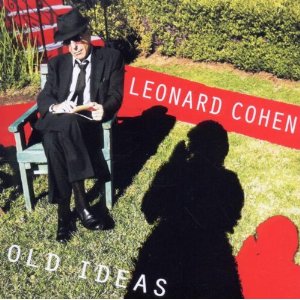“Laughing” Len. Music to cut your wrists to. The suicide songbook. Many are the misconceptions that have been put against the music of Leonard Cohen over the years, keeping him as a strange kind of musical curio since he first emerged as a writer who couldn’t sing on 1967’s Songs Of Leonard Cohen. The canon has always wanted its members to deal in dreams and whimsy, to be unattainable, ludicrous idols and thus easily mythologised. This poet who made something sublime from all the little cracks of our every day human frailties never quite fitted in.
Cohen was always a musical outsider, and the guitar on his early worked clattered with an amateur’s enthusiasm. This is something many of his imitators, or lesser singer songwriters forget as they fret about craft or folk authenticity. Ignore the faithful acoustic guitar covers of his songs: it’s in the unusual ones, from Nick Cave’s scream-from-hell take on ‘Avalanche’ to the X Factor ‘Hallelujah’, that you’ll find the key to understanding that Cohen’s music is there to pay service to his words. This became all the more evident as time went on. No wonder Death Of A Ladies Man, the infamous collaboration with Phil Spector, didn’t work out. On the other hand, though, the brusquely arranged synthesisers on I’m Your Man and The Future gave gravitas to the apocalyptic lyrical themes. As Cohen’s voice deepened through the 80s, it never drowned.
His music is mercurial and personal, dancing away from genre and classicism. You can be a cult artist and have a million adherents to whom you are personal, elemental. This is what Leonard Cohen always was, and it was as that person that he disappeared up Mount Baldy to retreat into retirement. As is now widely told, while up there his manager both ran off with his money and left him bankrupt, forcing a return to music. As he sings here on ‘Darkness’. "I got no future / I know my days are few / the present’s not that pleasant / just a lot of things to do / I thought the past would last me / but the darkness got that too". A note on a hand drawn self portrait projected as this track played at a listening event for Old Ideas read "the grim days of summer 2007".
Nevertheless, that world tour, begun out of financial necessity, put the lead back in Len’s pencil and had, he says, an “invigorating effect”, that meant that after the touring obligations were done with he wanted to carry on. This record is the result. Although Cohen is commendably vague when questioned about his work, it’s not hard to surmise that the unexpectedness of his return to music, and perhaps pleasant surprise at how well it worked out, seems to shape much of Old Ideas.
It begins with one of the best opening lines committed to tape in recent times: “I’d love to speak with Leonard / He’s a sportsman and a shepherd / He’s a lazy bastard / Living in a suit”. It’s at once witty and self-deprecating, smooth and wry, skewering the mythos of the artist. “He will speak these words of wisdom / Like a sage, a man of vision / Though he knows he’s really nothing / But the brief elaboration of a tube.”
Old Ideas excels in “brief elaboration”, arranging its generous instrumentation with eloquence and simplicity, reflecting the grace of the man himself. It veers between the Tom Waits bar footstep of ‘Amen’, which also has a strange slowed-down take on the pace of ‘I’m Your Man’, and the blue collar rock and organ-laden swirl in ‘Darkness’.
But whatever is going on the music, from the aforementioned to twanging guitar, harmonica, pleasant string fills, the trademark backing vocals or a lonely, Mediterranean night violin on ‘Show Me The Place’, everything revolves around his voice. ‘Crazy To Love You’ is the biggest link to the past, with simple acoustic guitar as Cohen neatly sums up the fruitless, empty quest of the male libido that he has explored for decades in words and in song: "I chased through the souvenir heartache / her braids and her blouse all undone". In the past Cohen hasn’t been a man for the piano, but it’s used to great effect throughout here. The low notes are perfect foil for his quiet passion, this hiss as his voice cracks as Cohen takes up his burden of song: "show me the place where you want the slave to go." In ‘Come Healing’ he displays a satisfying refusal to adhere to the unfair demands of structure, scattering “none of us deserrrrrvin’ the cruelty of her grace" loosely across more tightly timed backing vocals.
In some ways Old Ideas is the most musically considered Leonard Cohen album yet, and perhaps the first that sounds like the kind of thing you’d expect from an old master of the 1960s and 70s. Yet Old Ideas’ musical strength lies in its restraint, perhaps indicative of its creator being, by and large, a non-musician. Though Old Ideas is album of accessible, classicist music that gets him to the top of the charts (kept off No.1 only by Lana Del Rey), to the front pages of the monthly magazines, to the screens and airwaves of the BBC, from Jarvis Cocker to Radio 4, he knows exactly when to turn it down so that every rattle and crack in his voice can be heard. Leonard Cohen’s music is to his voice what that excellent suit and fedora is to his body: in service to the core of his words: love, redemption, hate, the nature of poetry, spiritual quest, betrayal, loss, desire, pain, seduction, destiny. Yes, these are old ideas. But this old man gives them a new resonance, and by his words that are carried through these songs, they will endure forever.


